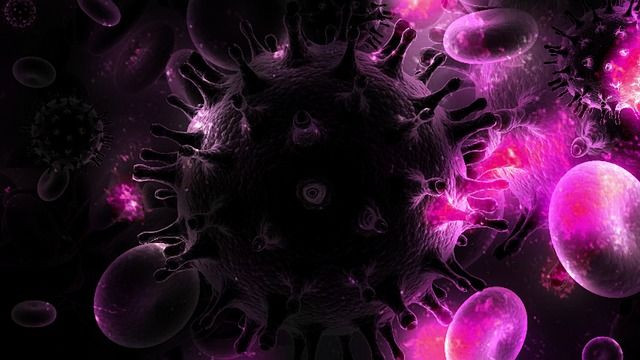Certain Penis Bacteria May Increase Risk Of HIV Transmission In Men

New research suggests that being uncircumcised and having certain bacteria under the foreskin of the penis may increase a man’s risk of contracting HIV. The research found that it’s not so much the amount of bacteria under the foreskin, but rather the type of bacteria that makes the most difference in HIV transmission and prevention. This finding may explain why circumcision lowers HIV risk.
The study, published online in mBio, found that men with 10 times more anaerobic bacteria (the type that thrive in the foreskin) are between 54 to 63 percent more likely to contract the virus, even when controlling for other factors such as condom use and the number of sexual partners.
It’s not clear why these bacteria raise the HIV risk, but the researchers hypothesize that they may draw more immune cells to the penis. This may then allow HIV, which targets particular immune cells, to more easily enter the bloodstream.
Read: HIV Cure 2017? New Research Suggests Way To Theoretically Eliminate Virus From Body
“Specific bacteria might cause inflammatory response that would cause the immune cells to congregate in the penis, where they're more likely to be exposed to the virus,” explained study coauthor Cindy Liu, Science News reported.
For the study, the team from George Washington University looked at the penis bacterial composition of 46 uncircumcised Ugandan men who became infected with HIV over the course of two years, and compared it with that of 136 uncircumcised men who didn’t over the same time period.
Although all men have bacteria on their penises, uncircumcised men have more as the foreskin gives the bacteria the ideal hideout to grow and thrive. The increased HIV risk was specifically associated with three types of anaerobic bacteria: Prevotella, Dialister, Finegoldia and Peptoniphilus. In addition, some of these bacteria have also previously been associated with increased HIV risk in women, and it's possible that sex partners can swap bacteria during intercourse.
Anaerobic bacteria make up the majority of bacteria found on the human body and inside mucous membranes. They get their name because they are unable to live or grow where oxygen is present, which is why they flourish underneath the foreskin. However, the bacteria also have positive roles in our health, and play an important part in human digestion, Medlineplus reported.
For now, Liu and her team plan to further investigate the relationship between penis bacteria and HIV. Although safe sex with a condom still remains the most important way to prevent HIV, Liu hopes that one day her research may lead to topical creams that could balance bacteria on the penis and perhaps offer further protection from the virus.
Source: Liu CM, Prodger JL, Kaul R et al. Penile Anaerobic Dysbiosis as a Risk Factor for HIV Infection. mBio . 2017
See Also:



























